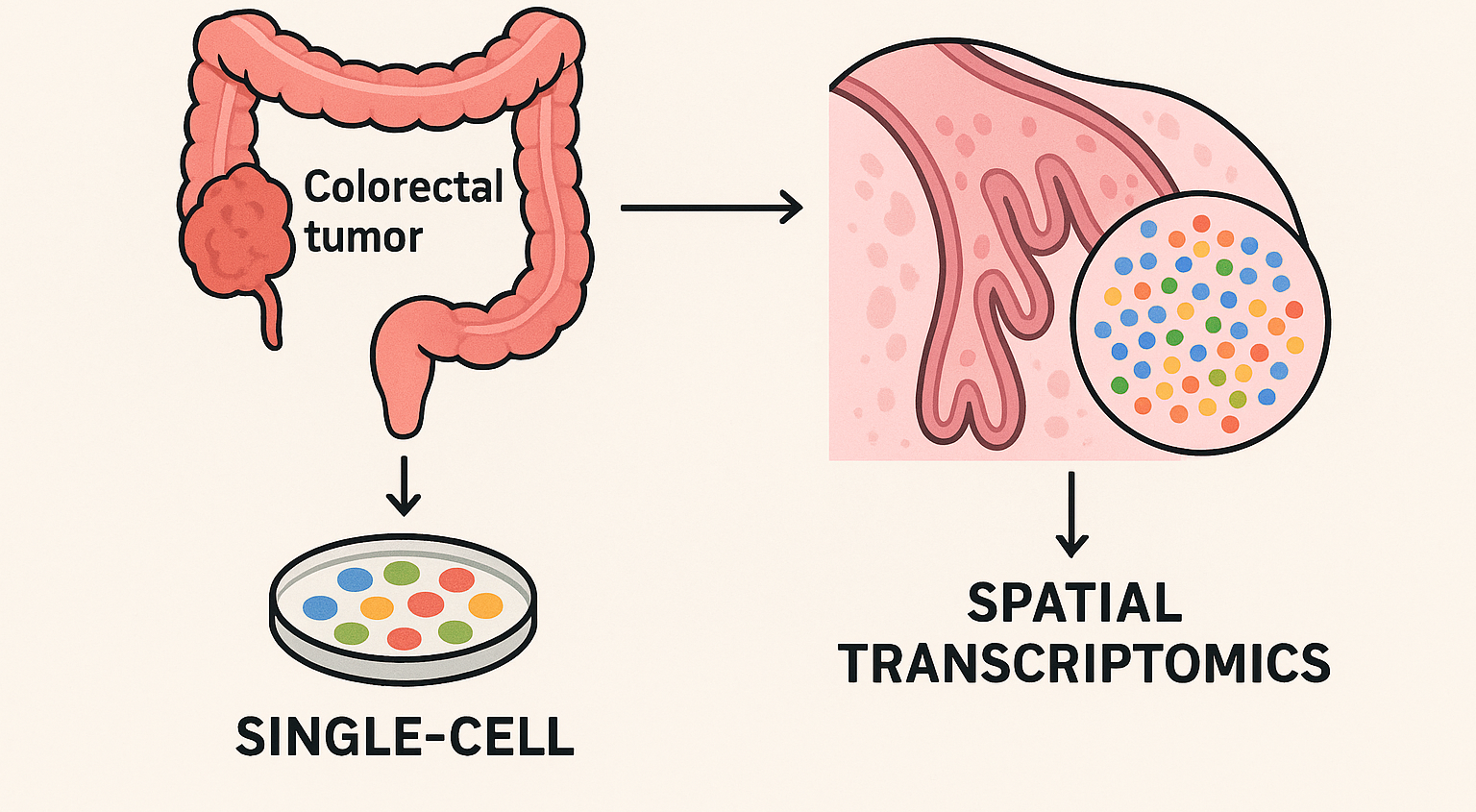Bowel Cancer Awareness Month

Hi, my name is Yujia and I am a first year PhD student in Kevin Myant’s lab studying cell plasticity in bowel cancer and metastasis. Inspired by the initiatives of charities like Bowel Cancer UK during Bowel Cancer Awareness Month, I would like to share our current research and its importance in understanding the disease and presenting novel opportunities for therapies.
Bowel cancer is the fourth most common cancer and the second most common cause of cancer-related mortality in the UK, with metastasis in advanced disease being a key reason for its lethality(1). Traditionally, bowel cancer, and many other cancers, have been studied through the lens of genetic mutations that drive their development and progression in patients. However, recent research has revealed that cell plasticity, where cells can adopt different phenotypes without acquiring genetic mutations, plays a critical role in advanced bowel cancer and relapse after treatment. Cancer cells can transition between different states and adopt more aggressive properties, hence facilitating processes such as invasion, migration, metastasis and therapy evasion.
Plasticity can occur due to microenvironmental cues and interactions from neighbouring cells such as immune and stromal cells. Our lab has developed models and techniques to study these cell populations and processes in advanced disease. My project aims to use high throughput techniques, namely single cell and spatial transcriptomics, to characterise the gene expression by cell populations while retaining their spatial locations in tumours. By delving into the mechanisms underpinning cell plasticity, we seek to elucidate how these changes contribute to the metastatic process and how they might be exploited to develop innovative therapies.
I chose to embark in this area of research due to my experiences during my intercalated year in medicine, where I enrolled in the BSc Biomedical Genetics programme at Newcastle University. I had the opportunity of undertaking a research project in the Leukaemia Research Cytogenetics Group studying the genetics behind childhood acute lymphoblastic leukaemia. During my studies and research, I was introduced to the field of bioinformatics and also witnessed the incredible applications of single cell transcriptomics in cancer research. The project also reinforced my passion for working with biological and clinical data and shaped my decision to pursue a computational PhD project in the field of cancer research.
Ultimately, I hope to contribute to a better understanding of the drivers of bowel cancer metastasis through my project. Apart from the opportunity to work on a pressing research question, taking on this project also provides an excellent opportunity for me to develop both bioinformatics and research skills that will stand me in good stead for a future career in academic medicine.



